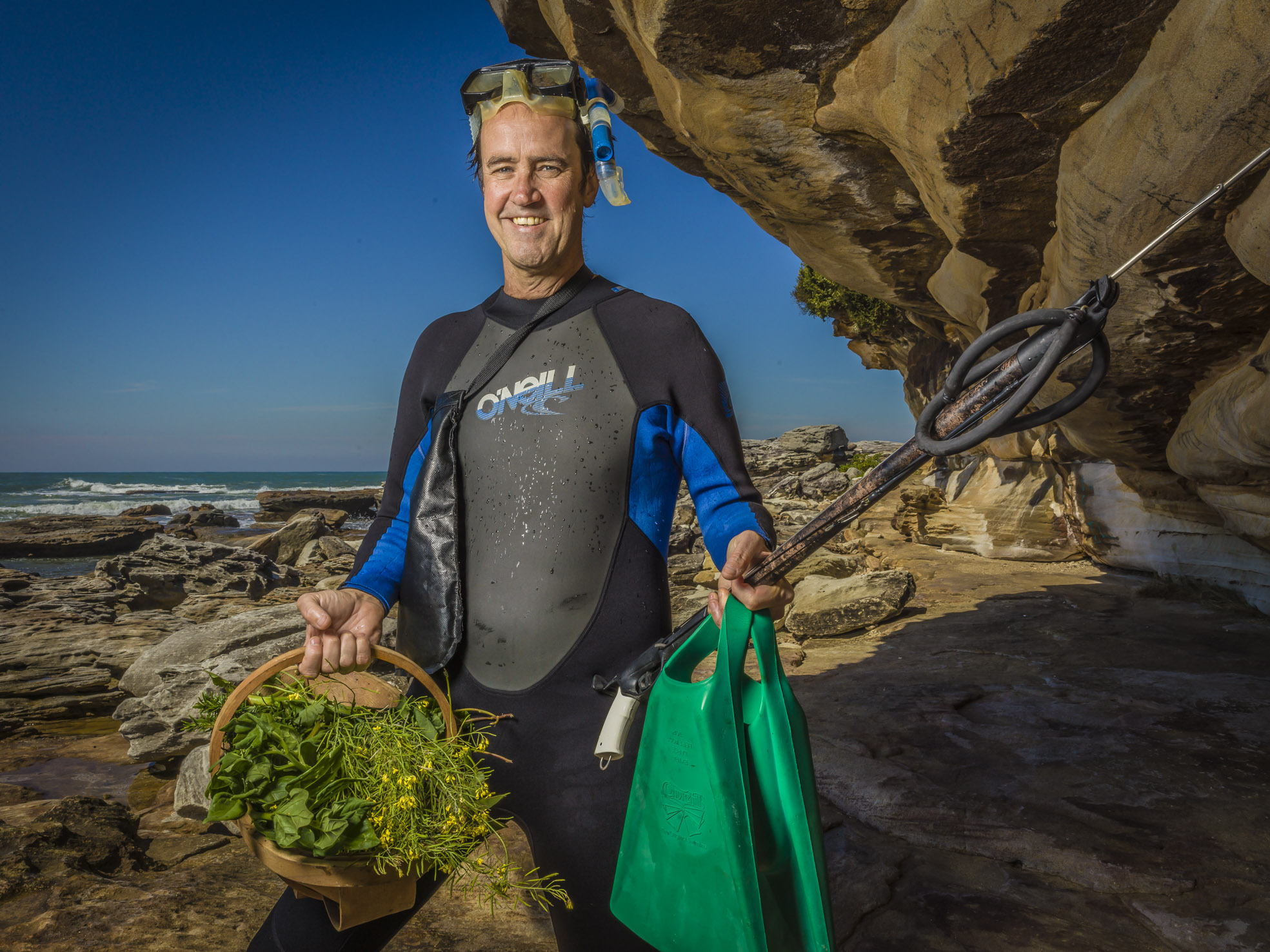Recently, I was on a panel of speakers at a Pocket City Farms event on waste when I was asked, “When did you realise you were seriously into tackling waste and what inspires you to keep going?” As the other panelists shared inspirational epiphanies, I could only answer more simply: I had been a “Waste Warrior” without knowing it.
For me, a waste-minimising life is a byproduct of engaging as closely as possible with where food comes from - growing fruit and veg, keeping bees and chickens, foraging, fishing and hunting. Not in some alternative rural lifestyle setting, mind you, but all in the context of a pretty ordinary middle-class, desk-working, mortgage-paying suburban family life.
A year of living wildly
Prior to the event, I had finished a year where I lived on wild and homegrown food with just a handful of excepted ingredients. It had been a serious challenge that called on a diverse set of skills and decades of experience, but in some ways it was perhaps no more of a personal ordeal than some other suburbanites go through renovating their house.
Inviting the ABC’s War on Waste for snacks
The media noticed. The ABC’s War on Waste asked if I would do a segment for their podcast. My first response was to check if they were sure they had the right guy...
I invited presenter Craig Reucassel to the beach for the real experience. We dove in for some sea urchins, sat on the rocks, ate the roe from a few and threw the shells back into the ocean. We then foraged for wild greens and returned to my home for another course: a salad of ‘weeds’, homegrown greens and seaweed with a wild mustard and backyard citrus dressing; urchin roe scrambled with eggs from my chickens, served on fried rounds of edible canna lily corms.
A nourishing lifestyle
Meals like this are dear to my heart. The ingredients are local, bursting with freshness, and preparation is easy. It’s incredibly satisfying - not just in the eating, but also in the engagement with the natural world. I become ever more a part of the world around me through the simple process of foraging.
And it was all completely waste-free. Green offcuts are used mindfully - nobody in my position and in their right mind would let perfectly good organic matter and nutrients out the front gate and into a garbage truck! What didn’t go to the chickens went to the worm farm.

Flipping the way we view waste
Here lies one of the beauties of wild and homegrown food – by taking away challenging choices around waste, a good deal of the moral burden of ‘doing the right thing’ is lifted. Whether you’re a Waste Warrior or a Land Filler, growing and foraging for your own food - rather than stuffing endless plastic bags with excess food - is probably the easiest way (and certainly the most delicious way) to eliminate guilt around waste.
This quote from George Monbiot in his book Feral sums this up perfectly:
“We have argued that certain freedoms - to damage, to pollute, to waste - should be limited. While there are good reasons for these injunctions, we have offered little in return. We have urged only that people consume less, travel less, live not blithely but mindfully, don't tread on the grass. Without offering new freedoms with which to replace the old ones, we are often seen as ascetics, killjoys and prigs. We know what we are against; now we must explain what we are for.”
War on waste - what is it good for?
Knowing that what we’re against is waste, how would you respond to Monbiot’s challenge - what are you for?
Directly engaging with where food comes from is the most rewarding answer I know.
To not just stop and smell the flowers but to taste them.
Eat the weeds.
Find that neighbourhood mulberry tree whose fruiting is the real herald of spring.
Learn what you can eat in the sea and dive in after it.
Don’t buy rosemary for silly money in a plastic packet when a respectful tip-prune at an Anzac memorial will do the job just as well.
Grow some other herbs even if they are just in a pot on the window sill.
Learn which mushrooms make fine table fare from an autumn walk in a pine forest.
Tend a veggie patch - no matter how tiny.
Compost not simply to be against the appalling numbers around food in landfill but to be for something – treasuring the retention of nutrients in a little corner of the earth that helps to feed you.
Along with your reusable coffee cup, carry some tupperware for your takeaway food. It will come in handy later as you fill it with seaweed at the beach, berries when you find them, wild greens like amaranth, fat hen, nettles or warrigal greens – which are so abundant that you might never buy spinach again.
Cut out some middlemen and all of their wastefulness with it.

Today’s menu
Today I am eating sea snails, stir-fried with garden vegetables on a bed of homegrown kumara. I will throw some shells in the fire-pit to make garden lime and crush a couple as grit for the chooks who have already eaten the offcuts. Some seaweed that I dried to eat has re-absorbed moisture, spoiled and needs to be disposed of; the worm farm will love it.
I know what we are against, but more importantly I know what I am for.
Centre image in banner photo courtesy of Tim Bauer.
--
Like what you've read? Subscribe to our updates & we'll send you more blog posts and other news from the front lines of the revolution.




